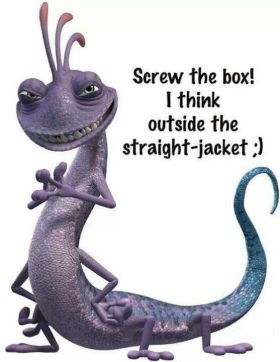Gary Becker — making nonsense out of economic science The econometrician Henri Theil once said “models are to be used but not to be believed.” I use the rational actor model for thinking about marginal changes but Gary Becker really believed the model. Once, at a dinner with Becker, I remarked that extreme punishment could lead to so much poverty and hatred that it could create blowback. Becker was having none of it. For every example that I raised of blowback, he responded with a demand for yet more punishment … Alex Tabarrok The alarm that sets off in my brain when reading Becker is that ‘rational actor models,’ rather than being helpful for understanding real-world economic issues, sounds more like an ill-advised plaidoyer for voluntarily taking on a
Topics:
Lars Pålsson Syll considers the following as important: Economics
This could be interesting, too:
Lars Pålsson Syll writes Schuldenbremse bye bye
Lars Pålsson Syll writes What’s wrong with economics — a primer
Lars Pålsson Syll writes Krigskeynesianismens återkomst
Lars Pålsson Syll writes Finding Eigenvalues and Eigenvectors (student stuff)
Gary Becker — making nonsense out of economic science
The econometrician Henri Theil once said “models are to be used but not to be believed.” I use the rational actor model for thinking about marginal changes but Gary Becker really believed the model. Once, at a dinner with Becker, I remarked that extreme punishment could lead to so much poverty and hatred that it could create blowback. Becker was having none of it. For every example that I raised of blowback, he responded with a demand for yet more punishment …
 The alarm that sets off in my brain when reading Becker is that ‘rational actor models,’ rather than being helpful for understanding real-world economic issues, sounds more like an ill-advised plaidoyer for voluntarily taking on a methodological straight-jacket of unsubstantiated and known to be false assumptions.
The alarm that sets off in my brain when reading Becker is that ‘rational actor models,’ rather than being helpful for understanding real-world economic issues, sounds more like an ill-advised plaidoyer for voluntarily taking on a methodological straight-jacket of unsubstantiated and known to be false assumptions.
One could indeed wonder why on earth anyone should be interested in applying that kind of theory to real-world situations. Like so many other mainstream mathematical models taught to economics students today, it has next to nothing to do with the real world.
From a methodological point of view, one can, of course, also wonder, how we are supposed to evaluate tests of theories and models building on known to be false assumptions. What is the point of such tests? What can those tests possibly teach us? From falsehoods, anything logically follows.
Modern expected utility theory is a good example of this. Leaving the specification of preferences without almost any restrictions whatsoever, every imaginable evidence is safely made compatible with the all-embracing ‘theory’ — and theory without informational content never risks being empirically tested and found falsified. Used in mainstream economics ‘thought experimental’ activities, it may, of course, be very ‘handy’, but totally void of any empirical value.
Utility theory has like so many other economic theories morphed into an empty theory of everything. And a theory of everything explains nothing — just as Gary Becker’s ‘economics of everything’ it only makes nonsense out of economic science.
Using false assumptions, mainstream modellers can derive whatever conclusions they want. Wanting to show that ‘all economists consider austerity to be the right policy,’ just e.g. assume ‘all economists are from Chicago’ and ‘all economists from Chicago consider austerity to be the right policy.’ The conclusions follow by deduction — but is of course factually totally wrong. Models and theories building on that kind of reasoning is nothing but a pointless waste of time — of which Gary Becker’s ‘rational actor model’ is a superb example.
